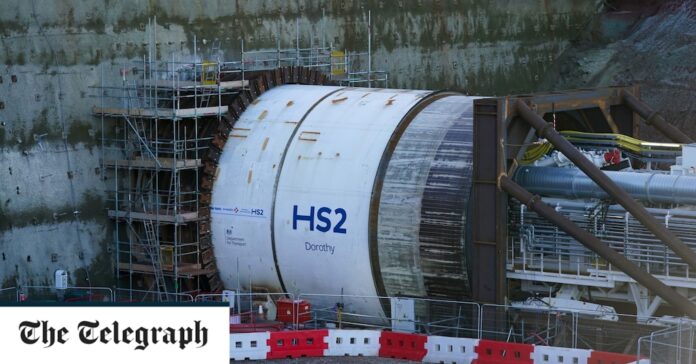This is the Government’s opportunity to make the right savings in the right places for the right reasons. Please don’t squander it
Rishi Sunak and Jeremy Hunt have been crystal clear about the difficult financial decisions to come. That inevitably means reductions in public spending, which in turn conjures images of the axe falling on politically impossible budgets like health, education, social care and policing. But in an era of difficult decisions, there’s one cut that should be an easy choice: HS2.
The financial incontinence of HS2 was once again under the spotlight last week, with the new Transport Secretary issuing the latest six monthly review. Horror show admissions littered the document, from revelations that contingency budgets are already being burned up, to the waste of £100m on design work at London Euston. “Unexpected” construction costs were blamed, but it was always a fairy tale to believe costs would not go up from the 2019 benchmark on a project that would take in excess of a decade (perhaps two) to deliver.
HS2 is currently on a path to costing the taxpayer in excess of £100 billion, and the true figure is likely to be even higher once the sustained loss in productivity to impacted businesses and the ancillary costs associated with delays caused by the pandemic and inflation are accounted for. That could equate to £307 million per mile.
If this hasn’t already sharpened the Chancellor’s mind, then he should read the latest analysis by Lord Berkley. Allowing for inflation, using indices published by the Office for National Statistics, he has calculated that the cost of HS2 at today’s prices is a whopping £155.52 billion. More significantly, he presents a compelling case that through absorption of existing works into the current railway and road network, with the vast swathes of land that have been compulsory purchased being returned to former owners or sold off, the money lost on this white elephant project can be reduced to just £8 billion, making the overall saving of £147 billion. That is around a third of the Covid debt.


